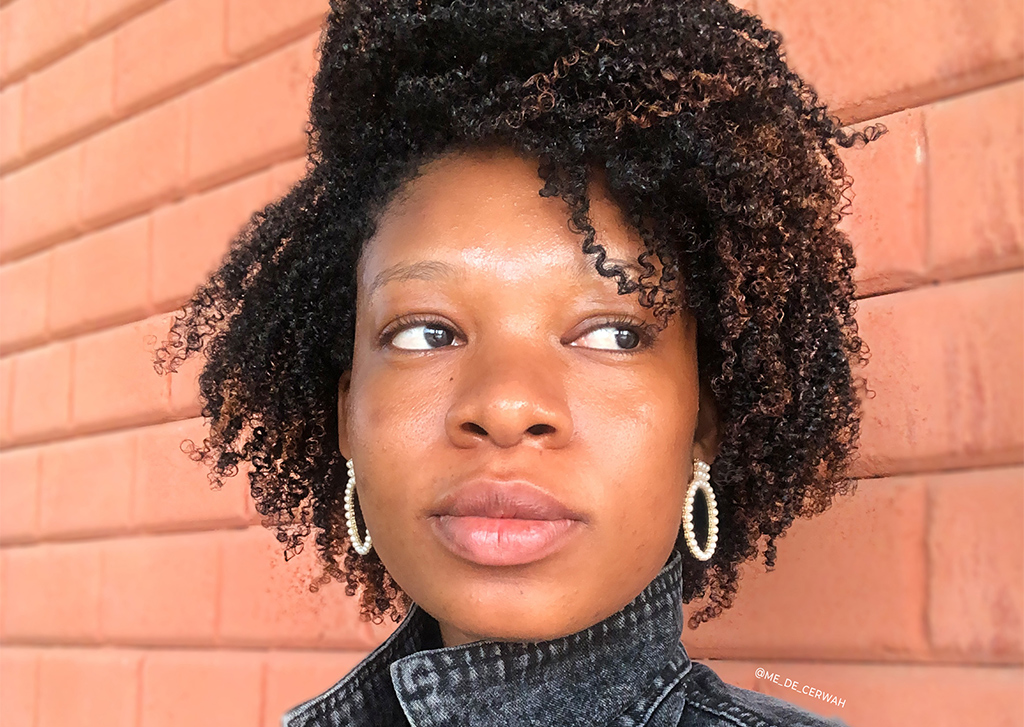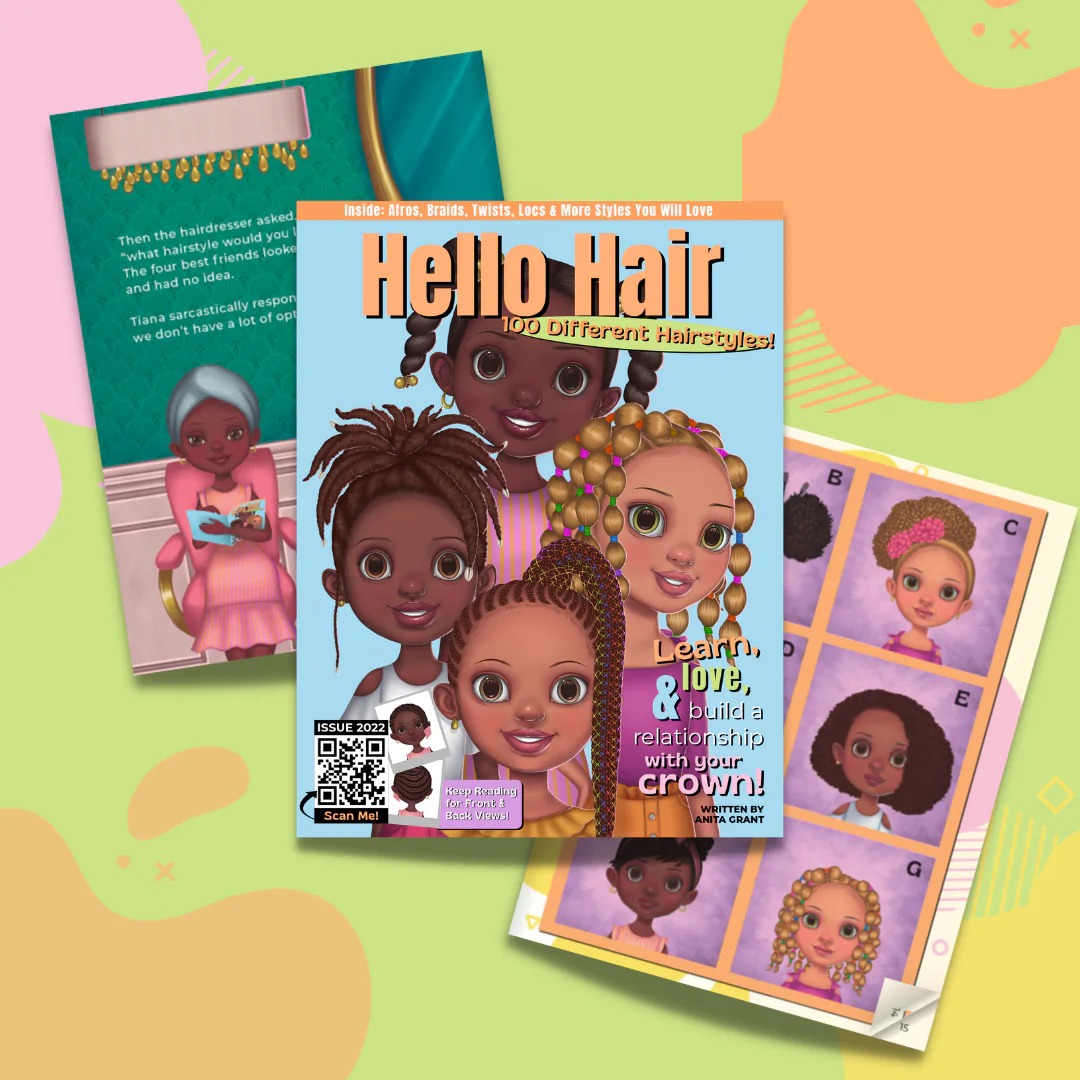For healthy, thick, hydrated natural hair, preventing hair breakage is one of the most important tasks in your hair journey. Breakage makes hair look thinner and weaker. It tangles up more than usual and isn’t able to retain length.
“My hair never grows” have you said that before? Typically, hair grows about ½ an inch every month, unless you have a damaged scalp or a medical issue. The hair seems as if it’s not growing because it’s breaking off as it grows. Bad hair practices can lead to hair breakage which is detrimental to the health of your hair. So, how do you prevent hair breakage?
1. Keep your hair moisturized
We all know how great our hair feels when it is moisturized. Your main objective for preventing hair breakage should always be based on moisture retention. Natural hair tends to be dry, so it is essential to have a weekly routine to ensure the hair strands are hydrated to minimize breakage.
When hair is not moisturized, it is dry, brittle, weak, easily tangles, and will eventually break off. Incorporate water, deep conditioners, and leave-in conditioners into your hair regimen to keep hair moisturized for shiny soft, and elastic hair.
2. Trim those ends
Our hair goes through a lot daily. No matter how careful and gentle you are with your hair strands. Everyday wear and tear from touching it, manipulation, friction, heat damage, sun damage, pollution, or even styling will have a strain on the hair.
You should pay particular attention to your ends, since they are the oldest and most vulnerable parts of your hair. Trimming damaged hair and single strand knots are necessary parts of your hair routine to maintain healthy hair. It is important to target split ends at an early stage before they travel up your hair shaft and finally break off the hair.
3. Wash your hair thoroughly
Washing your hair is an important step in reducing the chances of hair breakage. When the hair is dirty or has product build-up, the hair strands cannot absorb moisture properly. This will lead to strands that are dry, brittle, and likely to break.
The state of your scalp can determine the quality of your hair. The hair follicles contain active cells that are responsible for new hair growth. When the scalp is not properly cleansed, the follicles are clogged which can disrupt the condition of the new hair growth. New hair will not be as strong or as healthy and more prone to breakage.
4. Make use of oils
Due to the structure of natural hair not being straight, sebum, our natural oil, has a harder time traveling down our hair shaft to nourish, lubricate, and protect the hair strands. Oils are a great supplement for our natural oil to retain moisture. Oils seal and lock in moisture to prevent hair breakage. Always use oils on moisturized hair.
5. Be gentle on your hair
Your hair routine, no matter how good it is, can cause hair breakage. You may be putting all the right products in your hair, but you are not being gentle with your hair. Hair is fragile, so if you are not gentle, the hair will break off.
Natural hair can take a lot of your time and it is easy to try to hasten the process. Avoid handling your hair when you are in a bad mood or when you are in a rush. There is a likelihood you might take all that frustration out on your hair. Schedule time for your wash days as a self-care routine to gently take care of the hair and prevent damage.
6. Protect your hair at night
A lot of hair breakage can happen at night. Your cotton pillowcases increase friction and absorb moisture from your hair. Your hair is left dry as it rubs against the fabric. Our curly hair loves tangling around each other, but this can cause hair breakage.
We spend a third of our day sleeping, so it is vital to have a hair routine to protect the hair. Use silk or satin pillowcases, scarves, and bonnets to protect your hair at night. Remember to tie gently at the front to also protect the hairline.
7. Detangle those curls weekly
Hair sheds 50-100 strands a day and it is important to get rid of shed hair to prevent it from tangling with the rest of the hair. The thought of detangling your thick hair can feel frustrating, but do not avoid it. You should aim to detangle your hair weekly, the longer you wait, the more detangling to do.
Use the right tools and techniques to prevent hair breakage which happens the most during the detangling process. You can use detangling brushes, wide-tooth combs, or even your fingers to detangle your curls. IIf possible, use products that have slip, such as detangling sprays and conditioners, to make the detangling process easier and minimize breakage.
8. Don’t over-style
You may be doing all the right things to your hair, but when it comes to styling, you are unintentionally causing your hair to break off. The less time you spend combing and styling your hair, the less likely your hair will break. Over manipulation and constantly touching your hair will eventually weaken it and cause it to break.
Style your hair once or twice a week, not every day. Go for hairstyles that are gentle on the hair and scalp. Choose low-maintenance styles that keep your ends tucked away until your next wash day. Tight hairstyles can cause unnecessary tension to the hair that can strain the hair and scalp causing hair to break. Opt for tension-free hairstyles.
9. Minimize exposure to heat
The use of heat styling tools can take a toll on the health of your hair. Excess heat can damage hair. Constant use of heat can cause heat damage which will leave the hair weak, excessively dry, lifeless, brittle, and highly susceptible to breakage. Avoid heat as much as possible. Go for flexi rods and curl formers as alternatives for heat-freestyles. If you must use heat, use low settings and always use a heat protectant.
Look at your current routine and figure out if there are things you are doing or not doing that could lead to hair breakage. Work on retaining the length you have worked so hard for.








